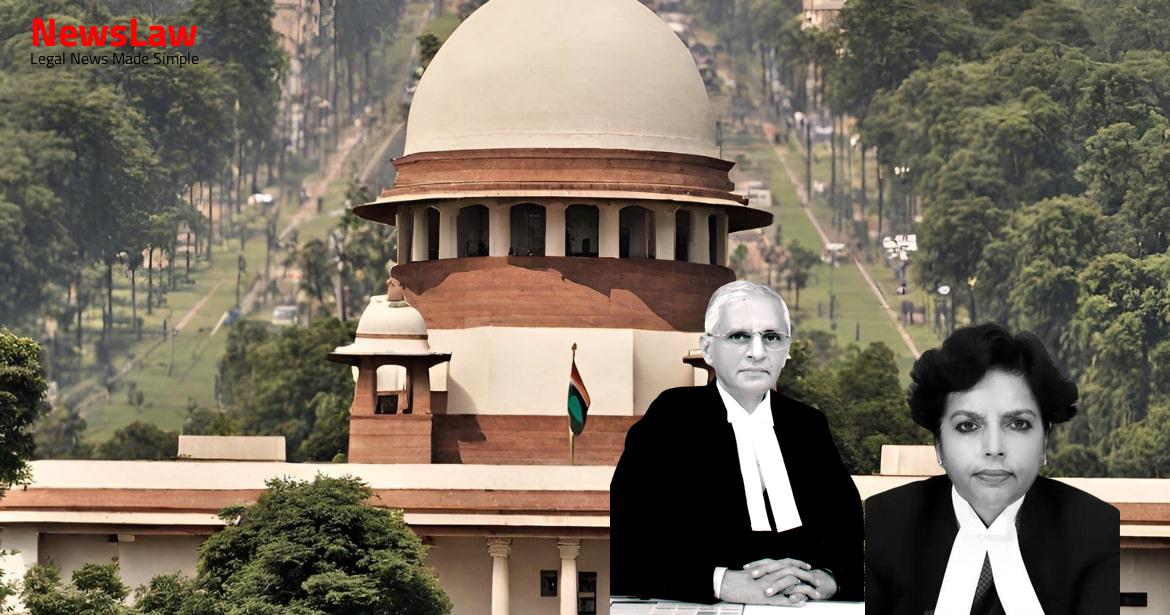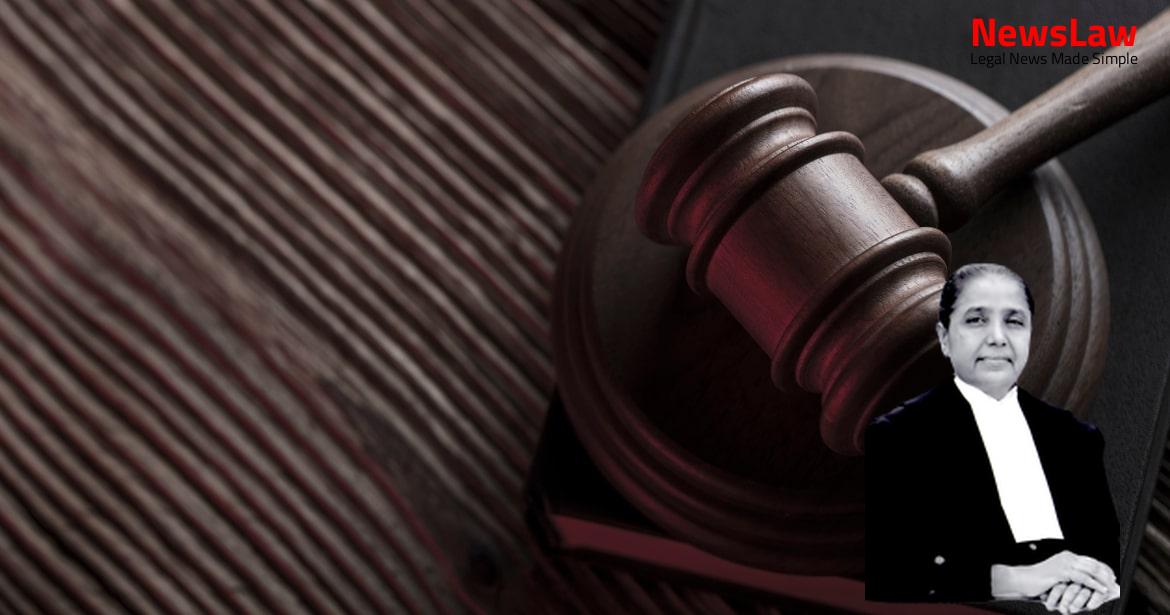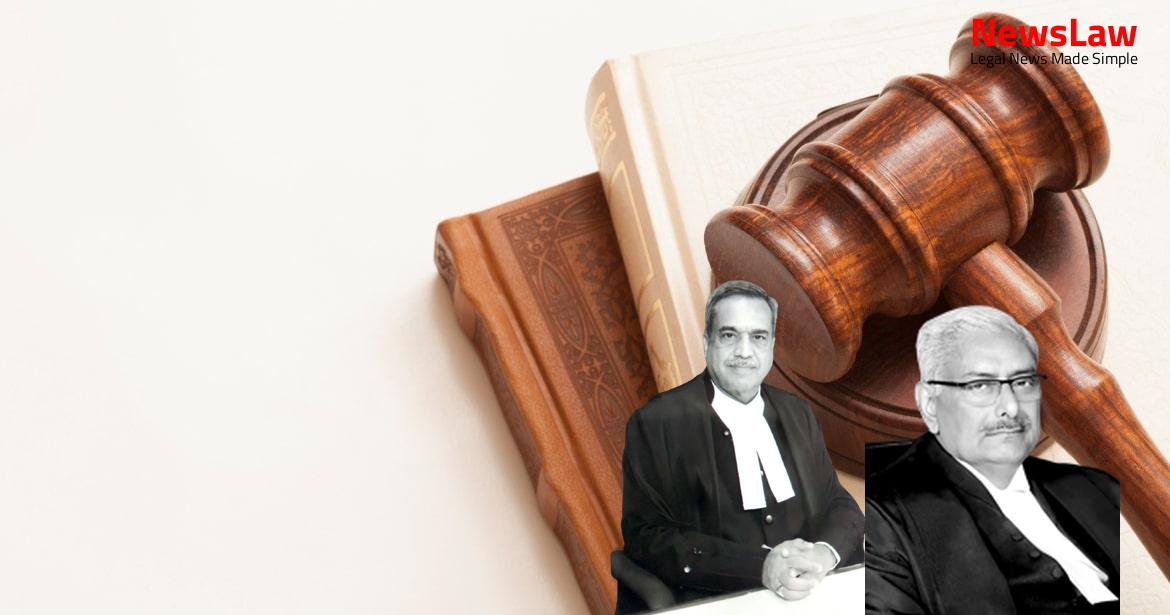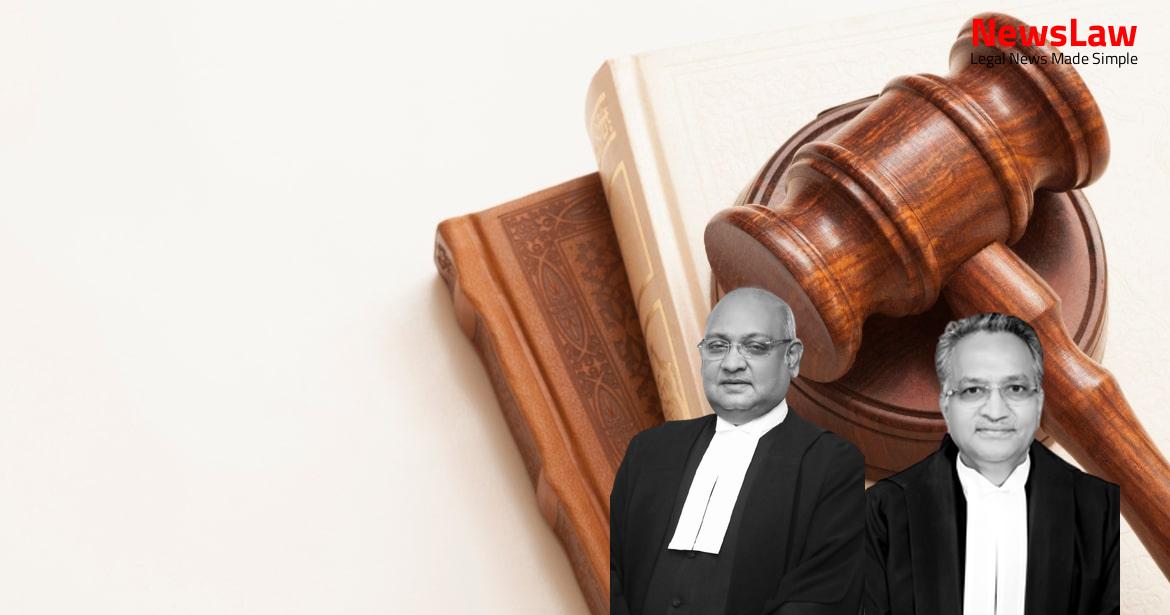Delve into the realm of judicial review in arbitration cases, where courts play a crucial role in assessing the validity and fairness of arbitration awards. The analysis focuses on the court’s legal standpoint on the interpretation of contract clauses, conduct of parties, and the evidentiary material presented. Discover the limitations imposed on courts when challenging arbitrators’ decisions and the importance of upholding the sanctity of arbitration proceedings within the legal framework.
Facts
- The respondent-Union of India wrongfully terminated the contract with the appellant-claimant.
- The Appellate Court disagreed with the Award and set aside the amount awarded for idle hire charges and machinery value.
- The Extension granted by the respondent-Union of India for the contract completion was deemed final and justified by the Appellate Court.
- The High Court appointed an Engineer to assess the machinery availability and value post contract termination.
- The Engineer’s report stated that 21 machineries were available, with a market value of Rs. 2,72,95,000, but most were in unusable condition.
- The High Court set aside the amounts awarded for idle hire charges and machinery value; however, the remaining issues and the findings of wrongful termination were upheld.
- The appellant-claimant was allowed to remove 21 machineries from the site upon furnishing a bank guarantee.
- The appellant-claimant did not accept the machineries due to the respondent-Union’s refusal to prepare an inventory.
- The Arbitrator found fault with the respondent-Union for not returning the machineries after contract completion, entitling the appellant-claimant to idle hire charges until then.
- The valuation of tools and machinery relied on a Court-appointed Valuer’s report, accepted by both parties.
- Appellant-claimant entered into a contract with respondent-Union of India for construction work at Naval Air Station, Arakonam in 1988 for ₹19,58,94,190/-
- Contract required completion within 21 months from commencement, ending on 23 August, 1990
- Appellant sought extensions for completion, starting from 15 July, 1992
- Discrepancy between dates of commencement claimed by appellant and respondent
- Appellant had difficulties due to waterlogging, requested passes for staff and labourers
- Contract terminated on 9 March, 1992 by respondent
- Appellant invoked Arbitration Clause but contract was terminated by Chief Engineer on 2 April, 1992
- Multiple time extensions granted by respondent, with project completion at 72% by mid-March, 1992
Also Read: Time as Essence of Contract in Sale Agreement: Legal Analysis
Arguments
- The Division Bench of the High Court of Madras partly allowed the appeal preferred by the respondent-Union of India under Section 39 of the Arbitration Act, 1940.
- The Division Bench interfered with the order dated 19 January, 2009, passed by the learned Single Judge in O.P. No 663 of 1999.
- The appeal was against the judgment and order dated 20 July, 2010.
- The respondent-Union of India had filed a petition under Sections 30 and 33 of the 1940 Act against the arbitral Award dated 24 June, 1999.
- Appellant argued that the Appellate Court erred in re-appreciating the evidence already scrutinized by the Sole Arbitrator and upheld by the Single Judge.
- Appellant contended that the Appellate Court exceeded its jurisdiction by substituting its opinion for that of the Sole Arbitrator.
- Appellant emphasized that courts should not sit in appeal over an arbitrator’s award unless specific grounds specified in Sections 30 and 33 of the Arbitration Act exist.
- Appellant’s counsel highlighted that the Sole Arbitrator’s decision on extension of time and termination of the contract was justified and erroneously overturned by the Appellate Court.
- Appellant asserted that the Appellate Court’s decision on idle hire charges and machinery value was unwarranted and against established principles of arbitration.
- Appellant argued that the Appellate Court’s interference in the arbitration award exceeded permissible limits as per precedents in several judicial pronouncements.
- Appellant’s counsel maintained that the Sole Arbitrator did not mis-conduct the proceedings or show any patent perversity in the award.
- Appellant’s counsel emphasized that the Appellate Court’s interference was unwarranted and substituted its opinion without justifiable grounds.
Also Read: Retirement Age of PTI/Sports Officer in University
Analysis
- Arbitrator’s conclusion cannot be challenged based on drawing own conclusions or failure to appreciate relevant facts.
- Court cannot substitute its own view on conclusion of law or facts against those drawn by the Arbitrator.
- The legal position regarding interference by courts in an arbitral Award was summarized.
- The High Court considered if there was any error apparent on the face of the award or if the arbitrator misconducted himself or the proceedings.
- In a particular case, the learned Arbitrator framed specific issues on the construction of contract provisions.
- Recent rulings and decisions were referenced to establish the legal parameters for arbitration cases.
- The arguments put forth by the appellant-claimant were examined regarding the reasonableness of time extension granted by the Union of India and the validity of contract termination.
- The Appellate Court does not sit in appeal over the findings and decision of the arbitrator, nor reassess or reappreciate evidence.
- The only grounds to challenge an arbitrator’s award are those mentioned in Sections 30 and 33 of the Act.
- The Appellate Court’s view that the arbitrator lost sight of relevant facts is erroneous as the arbitrator’s decision is final.
- Arbitrator’s possible and plausible view should not be interfered with solely because a different view is possible based on the same evidence.
- Scope for interference in arbitral awards is limited within the parameters of the Arbitration Act, 1940.
- Arbitrator’s decisions were based on construction of the contract, conduct of parties, and relevant evidentiary material.
- High Court should not have interfered with the arbitrator’s award and substituted its view.
- Appellate Court overstepped its jurisdiction by reevaluating the arbitrator’s reasoning and evidence.
- Arbitrator provided justified reasons for the awards made in favor of the appellant-claimant, which are beyond Appellate Court’s scrutiny.
- Arbitrator’s analysis of the evidence and interpretation of contract clauses were considered sufficient and legitimate.
- Arbitrator’s findings were consistent with the examined documents and supported by the correct perspective.
- Learned ASG relied on Para 44(g) of the decision in Rajasthan State Mines and Minerals Ltd.
- The reliance placed by the learned ASG will not benefit the respondent-Union of India.
Decision
- The impugned judgment dated 20 July, 2010 by the Division Bench of the High Court is quashed and set aside.
- The judgment dated 19 June, 2009 passed by the learned Single Judge is restored.
- The decree granted in favor of the appellant-claimant as per the Award is upheld along with interest.
- The appeal is disposed of along with pending applications, if any.
- The parties are left to bear their own costs.
Case Title: ATLANTA LIMITED THR. ITS MANAGING DIRECTOR Vs. UNION OF INDIA REPRESENTED BY CHIEF ENGINEER MILITARY ENGINEERING SERVICE (2022 INSC 50)
Case Number: C.A. No.-001533-001533 / 2017



